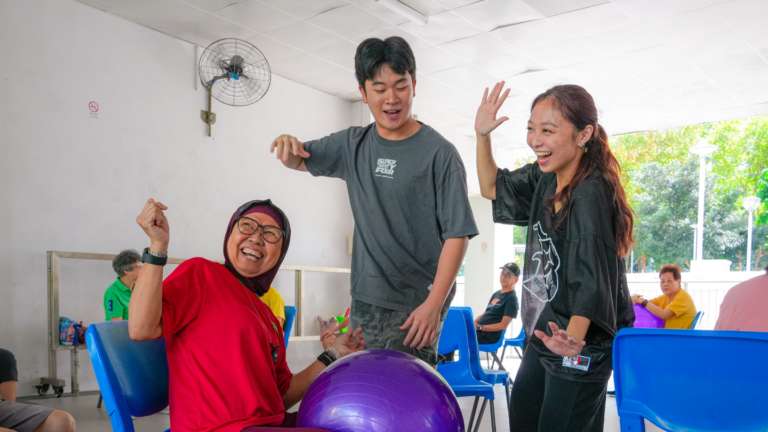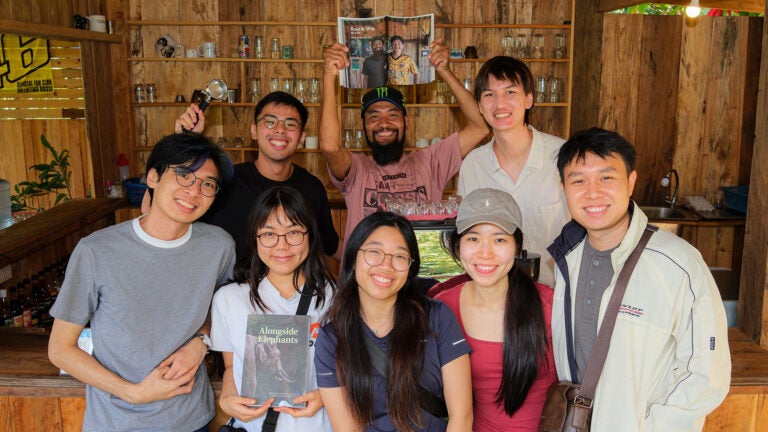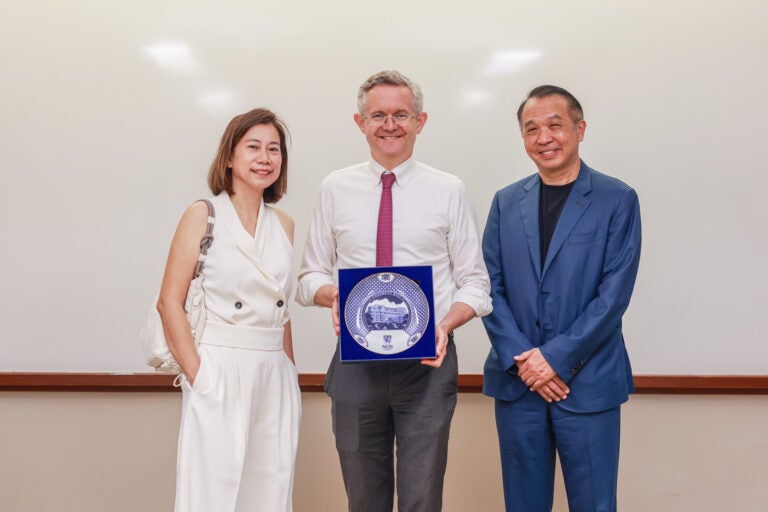This story first appeared on NUSNews on 7 November 2025.
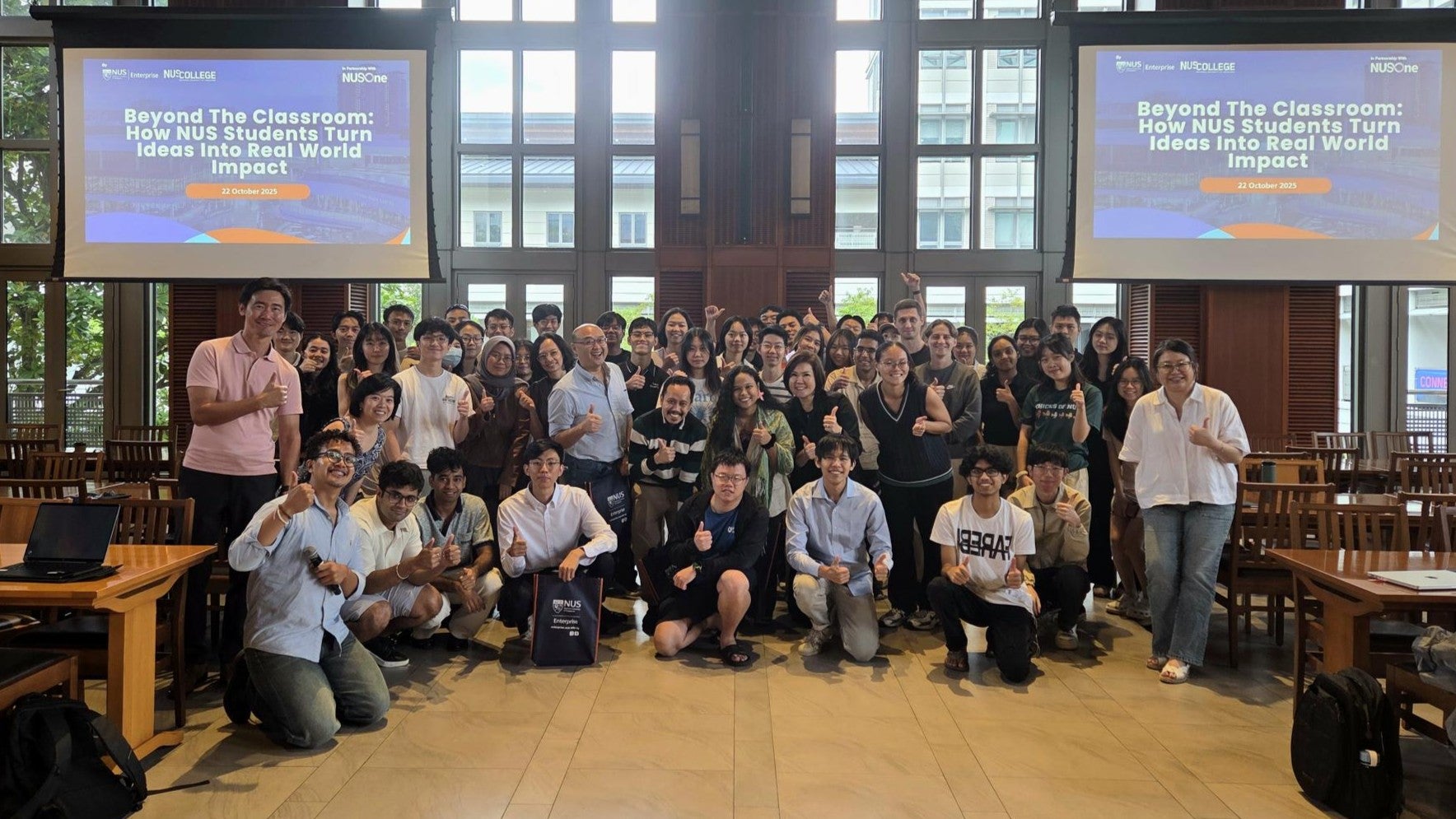 The event “Beyond the Classroom: How NUS Students Turn Ideas Into Real-World Impact” was a collaboration between NUS Enterprise, NUS College and the Office of the Provost – NUSOne to inspire students to develop their ideas for social change into ventures with long-term impact.
The event “Beyond the Classroom: How NUS Students Turn Ideas Into Real-World Impact” was a collaboration between NUS Enterprise, NUS College and the Office of the Provost – NUSOne to inspire students to develop their ideas for social change into ventures with long-term impact.
When it comes to making an impact on real-world social issues, theories learnt in class and sophisticated scenario modelling can only go so far. Once taken to the field, carefully designed solutions can stall or fall apart as challenges emerge from unpredictable factors like human behaviour, and practical considerations pull resources in different directions.
Amid the chaos and complexity, real learning happens.
“Experiential learning gets students to confront real world issues and test responses that could solve sticky problems through trying, failing, adapting and scaling, which is even more needed today when expert opinions and table-top plans can be easily engineered by AI,” said Associate Professor Daniel Goh, Associate Provost (Undergraduate Education) and Vice Dean (Special Programmes) at NUS College (NUSC).
“It brings students face to face with communities on the ground, to interact and collaborate with fellow human beings, encouraging empathy and giving us the baseline humanity that would result in meaningful innovation and change.”
Assoc Prof Goh was speaking at “Beyond the Classroom: How NUS Students Turn Ideas Into Real-World Impact,” an event jointly organised by NUS Enterprise, NUSC and the Office of the Provost – NUSOne to discuss how student projects can be scaled up into real-world ventures that create lasting social impact.
The NUSOne initiative encourages students to make time for out-of-classroom learning on Wednesday afternoons, when they can take part in events like this one on October 22 and community engagement activities like designing and conducting workshops with underserved communities on topics such as diet, exercise, phone usage and environmental awareness. Experiential learning is also a cornerstone of the NUSC curriculum, which includes the Impact Experience (IEx) programme, where students spend two years working on societal challenges in Singapore and Southeast Asia.
Attended by about 60 students from across NUS, the event was held at NUSC’s Saga Dining Hall and featured a workshop on developing strategies for impact and a panel discussion with three NUS entrepreneurs on how they developed their ideas into tangible solutions for social good. In addition, NUS Enterprise shared opportunities for students to deepen their entrepreneurial skills, including NUS Overseas Colleges and the NUS Enterprise Summer Programme in Entrepreneurship, and highlighted the funding available to support their ideas.
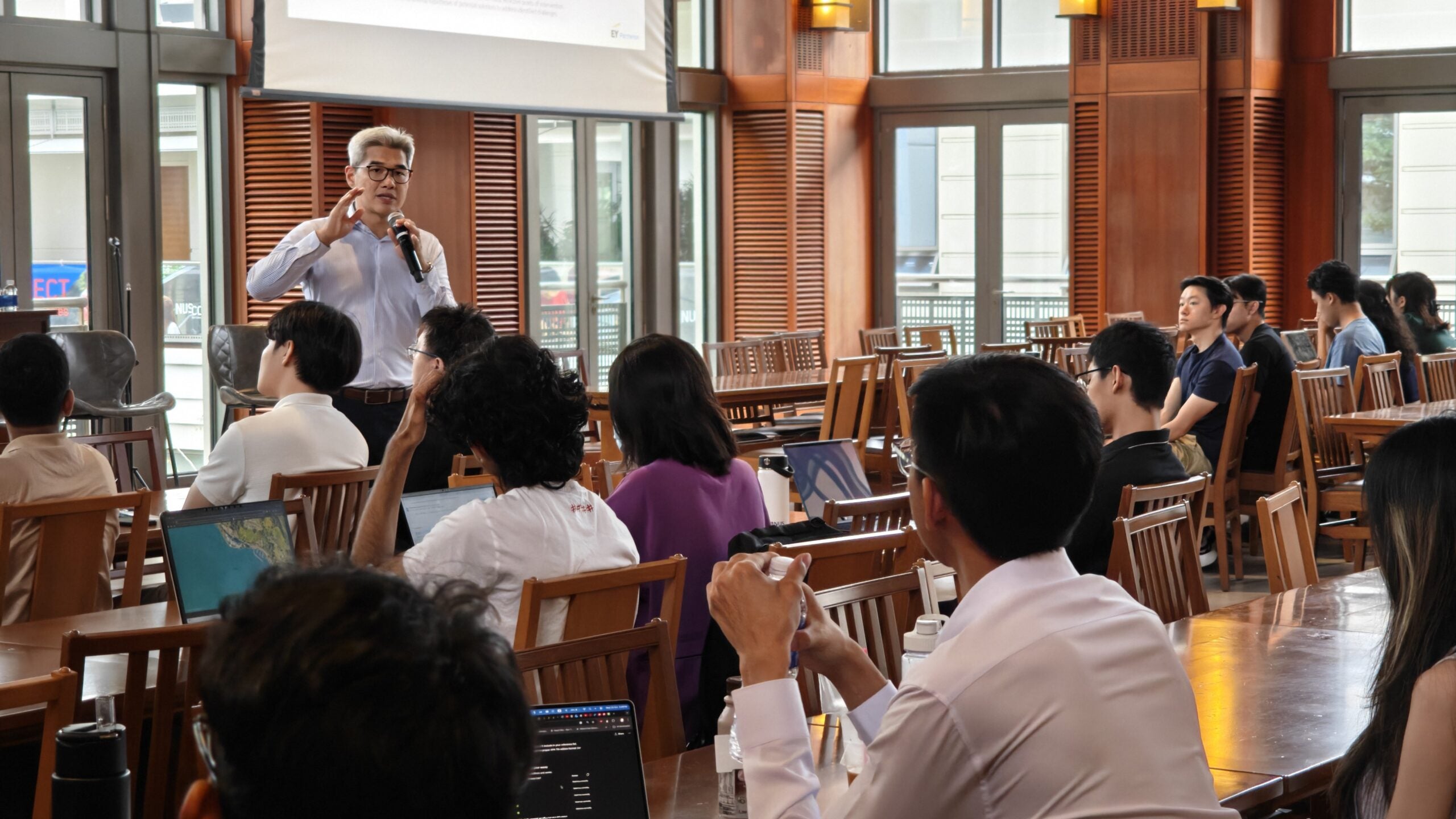 Students participating in the “Social Innovation – Developing Strategies for Impact” workshop led by Mr Calvin Chu, Partner at EY-Parthenon, Ernst & Young.
Students participating in the “Social Innovation – Developing Strategies for Impact” workshop led by Mr Calvin Chu, Partner at EY-Parthenon, Ernst & Young.
Intentional design for greater impact
To help students explore how social innovation and entrepreneurship intersect, Mr Calvin Chu, Partner at EY-Parthenon, Ernst & Young, conducted a workshop titled “Social Innovation – Developing Strategies for Impact.” He shared case studies from his years of experience advising Fortune 500 companies and social enterprises to demonstrate how strategic design, empathy and entrepreneurial thinking can drive scalable, meaningful solutions.
For example, when his consultancy company partnered with the National Volunteer & Philanthropy Centre (NVPC) on dementia inclusion, the exercise of creating personas proved crucial in understanding NVPC’s volunteers, donors and beneficiaries and designing solutions. Using these personas, they created immersive experiences to foster empathy and understanding for people living with dementia and their caregivers, developed tools such as user journey maps to identify the root causes of community challenges and co-created innovative solutions with healthcare providers, corporations and community groups.
He also introduced the Social Innovation Toolkit, a practical framework that helps changemakers and aspiring founders uncover core challenges faced by communities, map leverage points and design sustainable solutions.
For many students, it was their first glimpse into how a strategic and structured plan, like those used in business development, can lead to innovation for social impact.
“I knew nothing about consulting before this,” said Jaxon Moh, a second-year NUSC student majoring in computing. “The session opened my eyes to what happens behind the scenes and how consulting can drive real social change.”
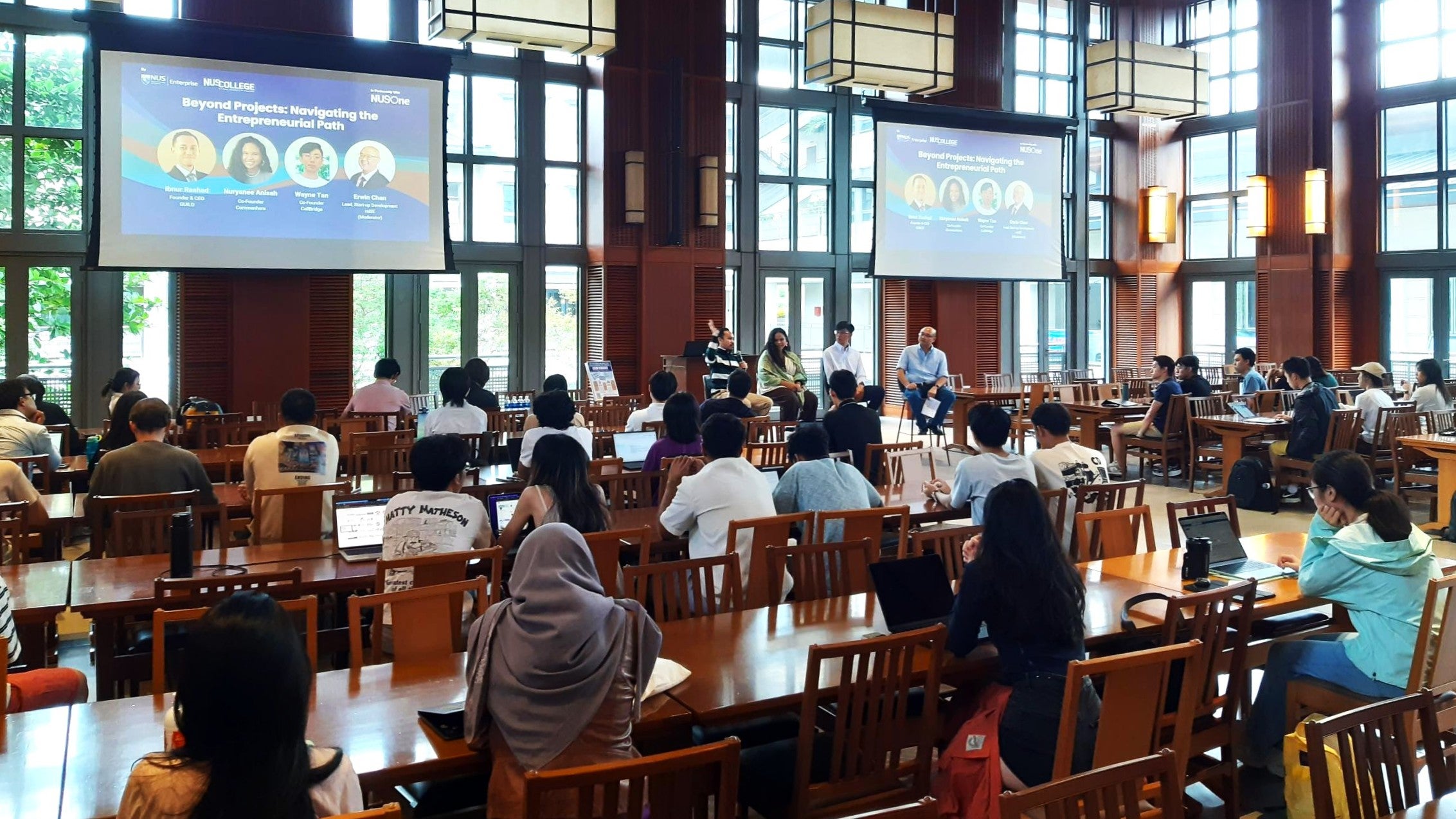 Two NUS students and one alumnus shared their entrepreneurship journeys and advice for aspiring founders in a panel discussion.
Two NUS students and one alumnus shared their entrepreneurship journeys and advice for aspiring founders in a panel discussion.
Turning seeds of ideas into social enterprises
In a panel discussion titled “Beyond Projects: Navigating the Entrepreneurial Path” and moderated by Dr Erwin Chan, Lead for Startup Development at raiSE Singapore, three social entrepreneurs – two current NUS students and an alumnus – shared tips and advice for aspiring founders based on their personal experiences.
Mr Ibnur Rashad, founder and CEO of Ground-Up Innovation Labs for Development (GUILD) Asia, reassured students that creating impact doesn’t require a particularly impressive idea, only curiosity and persistence.
“I didn’t set out to be an entrepreneur. I just loved experimenting. Sometimes curiosity, not ambition, leads to the most meaningful ventures,” said the NUS College of Design and Engineering alumnus, who turned down a Google offer to focus on his social enterprise that empowers ground-up innovators to solve social and environmental challenges.
Commenhers cofounder and CEO Nuryanee Anisah, a Year 4 NUSC and NUS Business School student, highlighted that passion alone is not enough to sustain a business in the long term. Creativity, drive and strategy are crucial in running her sustainable fashion enterprise, which has upcycled over 9,000 kg of textile waste, employed 90 makers and set up four community sewing spaces over the past half-decade.
She added: “Strong partnerships, clear communication and reinvesting in the community are what make lasting change possible.”
One essential step in the innovation process is taking the time to understand the problem at hand, said Wayne Tan, co-founder of CallBridge, an app that helps deaf users make and take phone calls. “Even the best ideas can fall flat if the problem isn’t meaningful to your users,” he said.
The second-year computer science student cited mentors and programmes like the NUS Enterprise Summer Programme in Entrepreneurship as valuable resources in helping entrepreneurs connect with potential co-founders, learn crucial business skills and build ventures that can truly make a difference.
Even as the entrepreneurs spoke candidly about developing grit in the face of rejections, late nights and self-doubt, they agreed that the challenges were outweighed by the satisfaction of seeing their ideas blossom into effective solutions that touch people’s lives.
Said Mr Ibnur: “Building a company isn’t easy. It’s a rollercoaster. But when it reflects who you are and empowers others, it’s profoundly worth it.”
By NUS Enterprise
